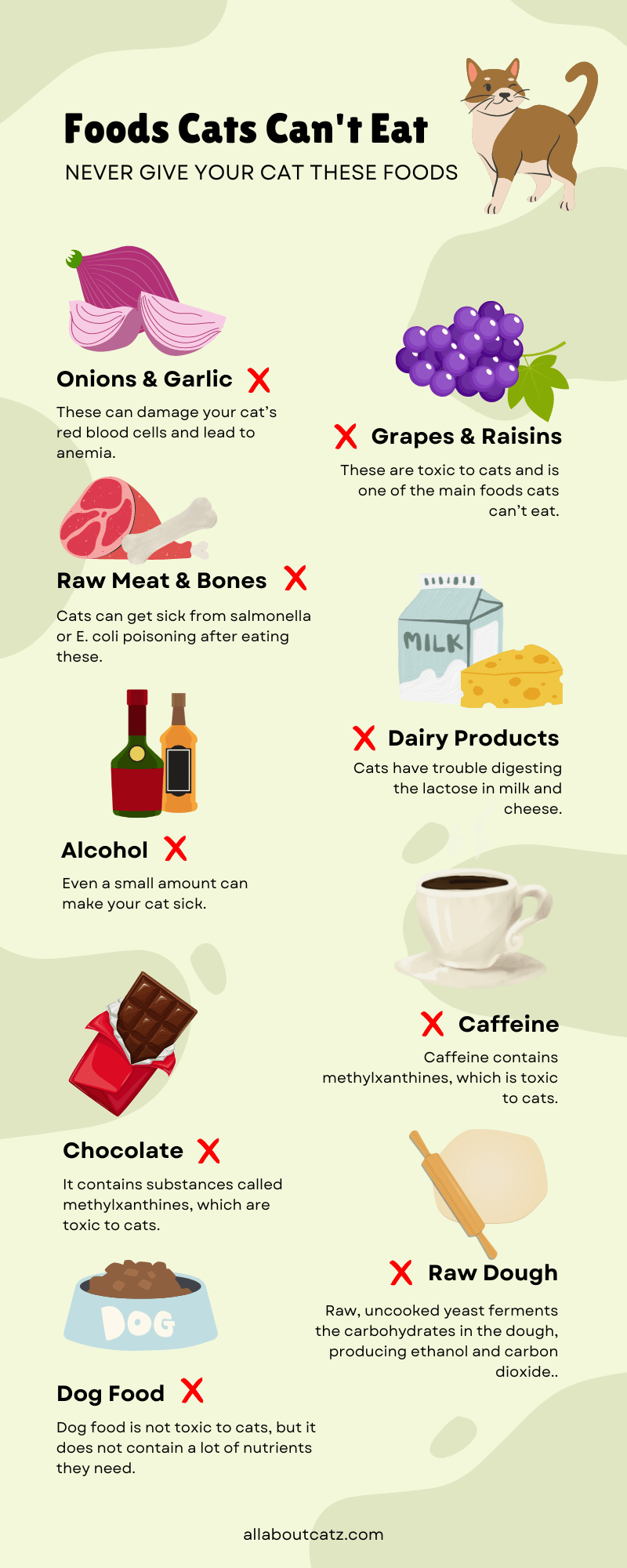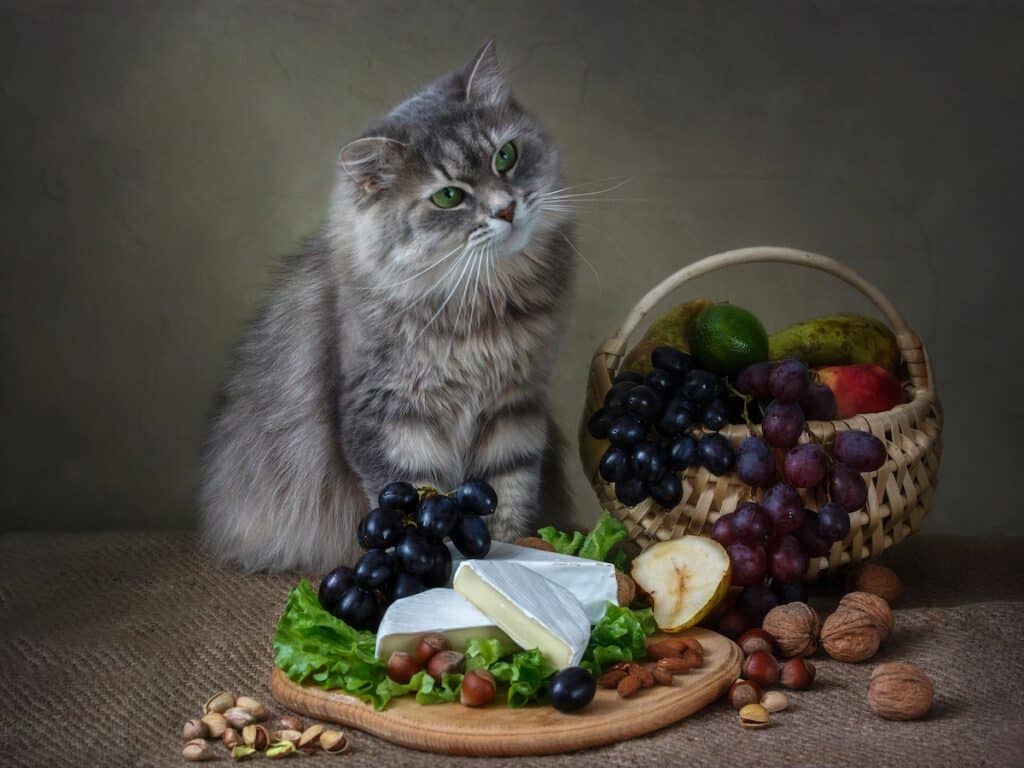When it comes to your cat, you want to make sure she has the best kind of cat food for her nutritional needs. There are several foods cats can’t eat that you should be aware of. Here’s a look at some of the most toxic foods for cats.

Onions and Garlic
Onions, garlic, shallots and scallions can damage your cat’s red blood cells and lead to anemia. These foods are typically poisonous when eaten in large quantities, but exposure to concentrated forms of onion or garlic, such as onion soup mix or garlic powder, can also be toxic. When eaten in large amounts, your cat might develop lethargy, weakness, reduced appetite, pale gums and orange to dark red urine; if so, take him or her to the vet immediately.
Raw Eggs, Raw Meat and Bones
Just like humans, cats can get sick from salmonella or E. coli poisoning after eating raw eggs or raw meat. The symptoms of the illness vary but can include vomiting, diarrhea, and lethargy. Salmonella and E. coli can also be transmitted to humans so be careful to properly wash your hands after cooking and keep your cat away from these raw foods. Raw eggs also contain an enzyme that can lead to skin and coat problems. Keep your cat from eating raw bones as well—she could choke on them, injure her digestive tract, or damage her teeth.
The only exception to this is to serve your cat really high quality meat. Any homemade, raw diets should include very high quality, grass fed meat.
Chocolate and Caffeine
Chocolate is on the list of foods cats can’t eat. It contains substances called methylxanthines, which can cause vomiting and diarrhea, high body temperature, muscle tremors, abnormal heart rhythm, abdominal discomfort, increased thirst and seizures. Methylxanthines are also found in caffeinated beverages and should be avoided. See your vet if your cat experiences any of these symptoms. As a general rule of thumb, darker chocolates are more dangerous than milk and white chocolate.
Alcohol and Raw Dough
It’s important to keep your cat away from alcoholic foods and drinks because ingesting them can make your cat sick. Some common signs of alcohol poisoning include vomiting, diarrhea, tremors, disorientation, trouble breathing, coma, and even death. If you think your cat has ingested even a small amount of alcohol, take her to the vet immediately.
Milk and Dairy
While it is true that your cat may enjoy drinking milk, it is not necessarily good for her. Cats often have trouble digesting the lactose in milk, which can cause an upset stomach or diarrhea. Most cats are only exposed to lactose from their mother’s milk when they are kittens. Because kittens only drink from their mother’s milk for a few weeks, their digestive systems are often not equipped to handle a reintroduction to lactose as adults. So, while some cats have no trouble tolerating milk, it isn’t recommended that you give them anything but their mother’s milk while they’re kittens due to the possibility of digestive issues.
Similarly, cats should not consume other dairy products such as cheese and butter.
Grapes and Raisins
Grapes and raisins are toxic to cats and is one of the main foods cats can’t eat. Within 12 hours of ingestion, vomiting sometimes occurs. Other signs that can show up within 24 hours include lethargy, diarrhea, reduced appetite, abdominal pain and decreased urination.
Grapes and raisins can be harmful to cats; even a small amount can make a cat ill. Vomiting and hyperactivity are early signs that your cat has consumed something toxic. Although some cats show no ill effects, it’s best not to give your cat any grapes or raisins and to keep grapes and raisins off countertops and other places accessible to your cat.
Dog Food
Although dog food is not toxic to cats, your cat needs a very different set of nutrients than a dog. Therefore, dog food is considered one of the foods cats can’t eat. Cat food should contain plenty of vitamin A, taurine, arachidonic acid and protein, and dog food has much lower levels of these nutrients. Dog food includes more vitamin A than cat food does because dogs can produce the vitamin themselves. Cats cannot produce their own vitamin A, so it must be included in their diets. Without enough taurine and arachidonic acid, cats can develop heart disease, vision issues and dental problems.














